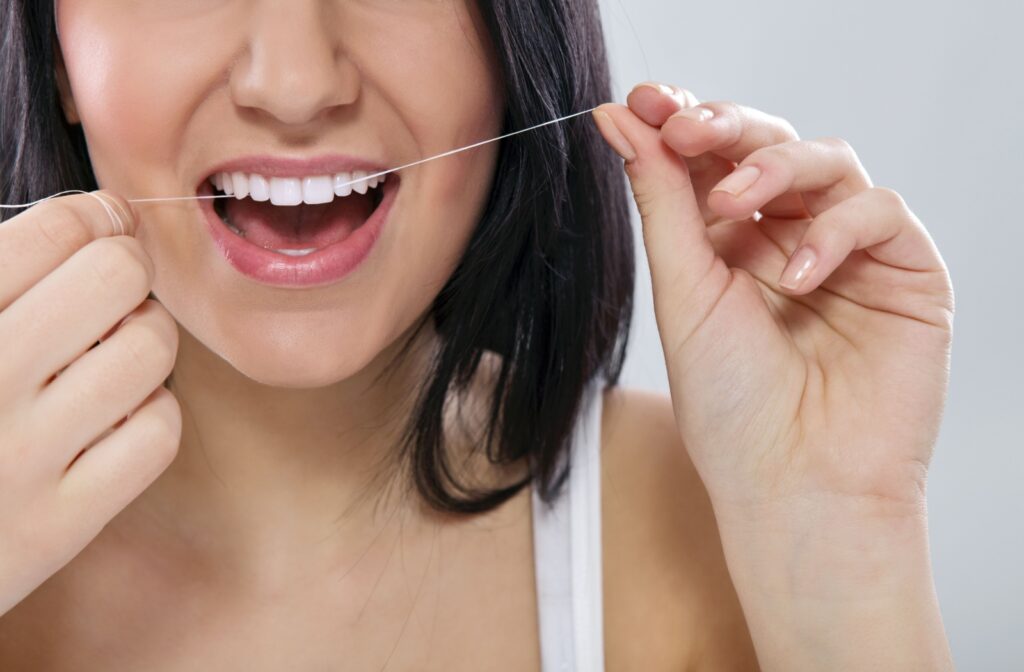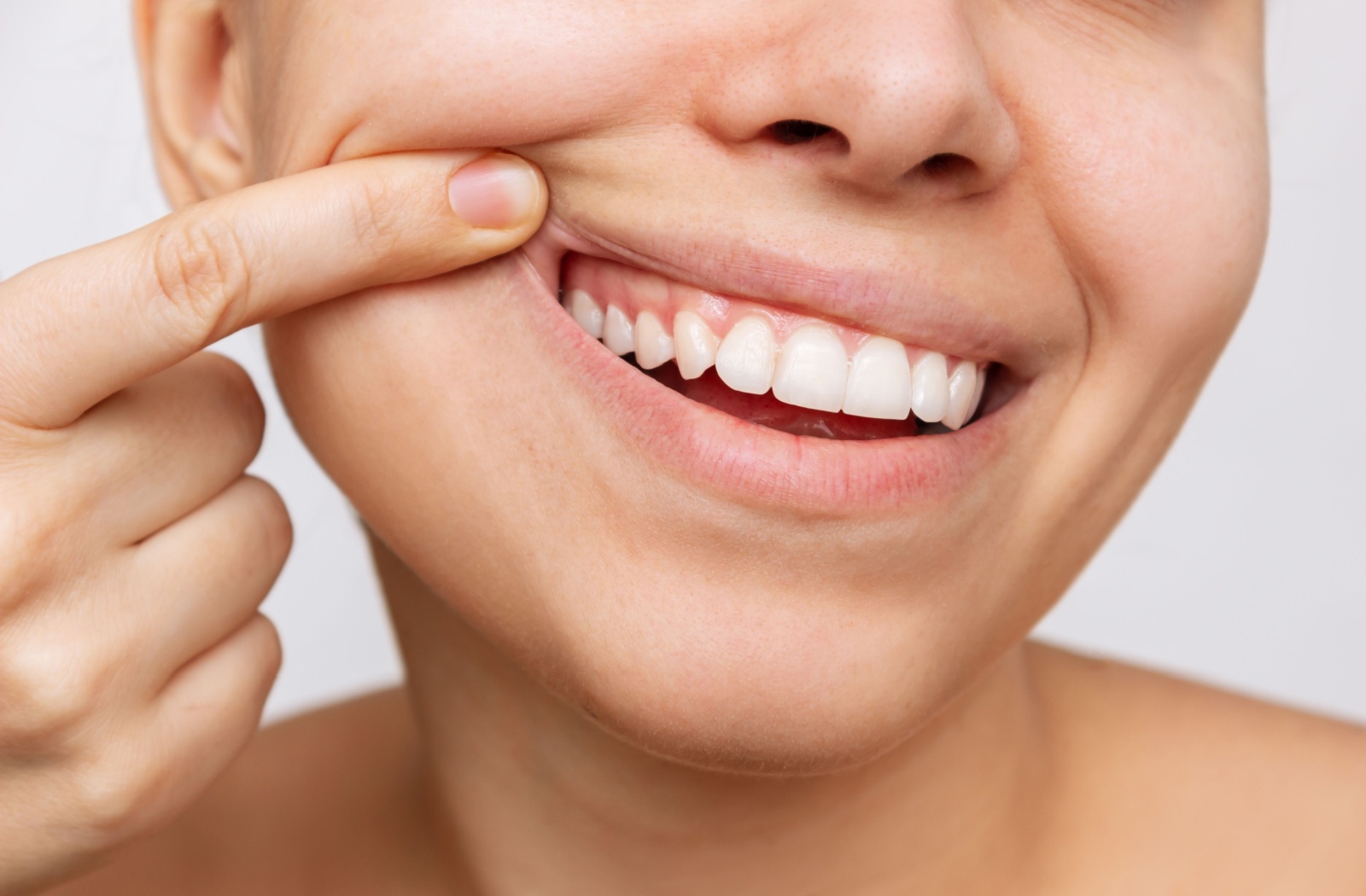Your gums are the foundation of a healthy smile, protecting your teeth and their sensitive roots. When you notice them changing, it’s natural to have questions about what you can do. As part of your family’s overall oral health routine, taking care of your gums is a key component in maintaining a beautiful and functional smile.
There are many simple and effective ways to help protect your gum tissue from receding. With a consistent and gentle approach to oral hygiene, you can help maintain your gum health for years to come. These proactive steps can make a significant difference in preserving your smile.
Why Healthy Gums Matter for Your Family
Your gums do more than just frame your teeth—they create a seal that protects the tooth roots and underlying bone from bacteria. Healthy gum tissue is firm, pink, and fits snugly around each tooth. This barrier is important for preventing decay and infection below the gum line.
When gums recede, they pull away from the teeth, exposing the root surfaces. These roots aren’t covered in hard enamel like the crowns of your teeth, so they are more vulnerable to decay. Exposed roots can also lead to sensitivity to hot, cold, or sweet foods and drinks.
10 Simple Tips to Prevent Gum Recession
Use a Gentle Brush Technique
Brushing too hard can damage your delicate gum tissue and contribute to recession over time. Instead of scrubbing, think of it as massaging your teeth and gums. Using proper brushing techniques with gentle, circular motions helps to clean every surface effectively.
A good habit is to hold your toothbrush at a 45-degree angle toward the gum line. This position helps clean the small space where your gums and teeth meet. Remember that a thorough technique is more helpful than forceful pressure.
Choose a Soft-Bristle Brush
A soft-bristled toothbrush is an effective tool for removing plaque without being too abrasive on your gums. Hard bristles can wear away both gum tissue and tooth enamel. Always select a brush with bristles labeled “soft.”
Many electric toothbrushes also come with pressure sensors that alert you when you are pushing too hard. This feature can be a great way to learn a gentler touch. It helps you develop better brushing habits for long-term health.
Floss Daily for Healthy Gums
Flossing is a necessary step for cleaning the spaces your toothbrush can’t reach. It removes food particles and plaque from between your teeth and just under the gum line. This helps reduce the inflammation that can lead to gum problems.
If you find traditional string floss challenging, a water flosser or interdental picks can be good alternatives. The important thing is to find a method you are comfortable with. Make cleaning between your teeth a part of your daily routine.
Add an Anti-Gingivitis Mouthwash
Using a therapeutic anti-gingivitis mouthwash can complement your daily brushing and flossing. These rinses are formulated to help reduce plaque and control gingivitis, an early form of gum disease. It’s a simple step that can support your gum health.
Swishing with a mouthwash can help clean areas that are difficult to reach with a brush or floss. Follow the instructions on the product for the best results. It works as part of a complete oral care routine.
Schedule Regular Professional Cleanings
Even with great home care, plaque can harden into a substance called tartar that you can’t remove on your own. A dental hygienist uses specialized instruments to gently remove this buildup during your regular professional cleanings. This is a key part of preventing gum irritation.
Regular appointments with your dentist also provide an opportunity to check your gum health. We can identify early signs of recession and offer guidance. This helps you address any concerns before they become more complex.

Quit Tobacco & Vaping Products
The use of tobacco and nicotine products can affect the blood flow to your gums. This makes the tissue more vulnerable to infection and can slow down the healing process. It can also lead to increased plaque and tartar.
Choosing to stop using these products can have a significant and positive impact on your oral health. Your gums can begin to heal and become more resilient. It is a beneficial decision for your smile and your overall well-being.
Eat a Balanced, Gum-Friendly Diet
A nutritious diet supports a healthy immune system, which helps your body fight off the bacteria that can cause gum disease. Vitamin C is important for building strong gum tissue. You can find it in foods like oranges, bell peppers, and kale.
Calcium, found in dairy products and leafy greens, helps maintain the strength of the bone supporting your teeth. Eating a variety of whole foods gives your body the nutrients it needs. A balanced diet contributes to a healthy mouth.
Protect Teeth from Clench or Grind Habits
Clenching or grinding your teeth—a habit known as bruxism—can put significant force on your teeth and gums. This repeated pressure can contribute to gum recession over time. Many people are unaware they do it, especially if it happens during sleep.
If you suspect you grind your teeth, a custom-fitted night guard can help. It provides a protective cushion between your upper and lower teeth. Discussing symptoms like jaw soreness or morning headaches with your dentist is a good first step.
Correct a Misaligned Bite
When teeth are not aligned properly, the force from biting and chewing can be distributed unevenly. Some teeth may take on more pressure than they are designed to handle. This can strain the supporting gum and bone tissue.
Orthodontic options like Invisalign can help correct alignment issues and create a more balanced bite. By spreading the force out more evenly, you can reduce the stress on your teeth and gums. This promotes better long-term oral health.
Note Hormone-Related Changes
Hormonal shifts during life stages like pregnancy or menopause can make your gums more sensitive and prone to inflammation. During these times, you may notice that your gums feel more tender or bleed more easily. It is helpful to be aware of these potential changes.
Maintaining a consistent oral hygiene routine is especially important during these periods. Let your dental team know about any life changes. We can provide personalized advice to help you manage your gum health.
When to See Your Dentist
It is a good idea to schedule an appointment if you notice any changes in the appearance or feel of your gums. Addressing issues early often leads to simpler management. You should feel comfortable seeking a professional opinion for any concerns you have.
Pay attention to these common signs of gum recession:
- Teeth that look longer than they used to
- New or increased sensitivity to temperature or sweetness
- A visible notch or indentation where the tooth meets the gum
- Gums that appear red, swollen, or bleed when you brush
The good news is that when caught early, these signs are manageable with the right care and professional guidance. Our team can work with you to create a personalized plan to support your gum health.
Treatment Options & Your Long-Term Outlook
Your daily habits are the most important factor in maintaining healthy gums. Consistent, gentle care can help slow or prevent further recession. A proactive approach to your oral health is connected to your overall wellness.
If gum recession is already a concern, professional treatments are available. A deep cleaning—sometimes called scaling and root planing—removes tartar from below the gum line to help gums heal. In some cases, a gum graft may be recommended to cover an exposed root and restore the gum line. These treatments have helped many patients regain their confidence and comfort.
Protect Your Family’s Smile
Taking care of your gums is one of the best things you can do for your long-term oral health. By using a gentle approach and staying consistent with your routine, you can help keep your gums healthy and strong. If you notice any changes or have concerns about periodontal disease, early action makes all the difference.
At Sunshine Dental, we’re here to support your family’s oral health every step of the way. If you have questions about your gums or would like to schedule a check-up, our team is ready to help. Contact us today to book an appointment at our NE Calgary dental clinic.








